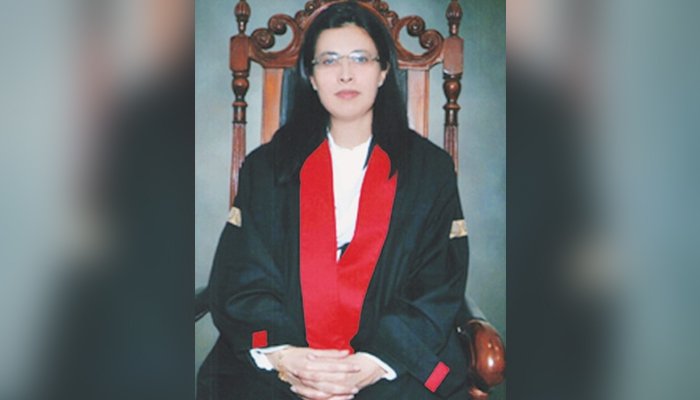Human Rights Watch welcomes nomination of Justice Ayesha Malik to SC
Decision to appoint Justice Malik will take place during a meeting of the Judicial Commission
September 07, 2021

The Human Rights Watch has welcomed the nomination of Justice Ayesha Malik to the Supreme Court of Pakistan, who will become the first-ever woman justice in the history of the country if appointed.
In a statement, the HRW said that the appointment of a woman to the Supreme Court would be an important step toward rectifying gender inequity in Pakistan’s legal profession.
The statement added that the move would end barriers to equal participation of women in high offices, including within the legal system, is crucial if Pakistan is to implement genuine reforms.
It should be noted that the decision to appoint Justice Malik will take place during a meeting of the Judicial Commission, which will be chaired by Chief Justice of Pakistan Justice Gulzar Ahmed. If confirmed, she would become the first woman appointed to the court in the country's 75-year history.
Justice Malik ranks number four on the seniority list of the LHC.
Born in 1966, Malik completed her basic education from schools in Paris, New York, and Karachi, according to the LHC's website.
She completed her BCom from the Government College of Commerce and Economics, Karachi, and studied law at Pakistan College of Law, Lahore.
She did LLM from Harvard Law School and has also worked with Fakhurddin G Ebrahim. Justice Malik has appeared in the high courts, district courts, banking courts, special tribunals, and arbitration tribunals.
The justice was called upon as an expert witness in family law cases conducted in England and Australia involving issues of child custody, divorce, women's rights, and constitutional protection for women in Pakistan.
Landmark two-finger test judgement
Justice Malik gave her landmark judgment back in June, when she had declared virginity tests for examination of sexual assault survivors “illegal and against the Constitution of Pakistan."
A single bench led by Justice Malik announced the verdict in a set of petitions, filed in March and June 2020 by rights activists along with a PML-N lawmaker.
In the 30-page judgment, the judge wrote that the two-finger test (TFT) and hymen test have no medical basis or forensic value in cases of sexual violence and declared that virginity tests “offend the personal dignity of the female victim and therefore is against the right to life and right to dignity enshrined in Article 9 and 14 of the Constitution”.











